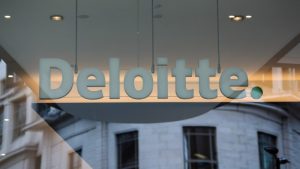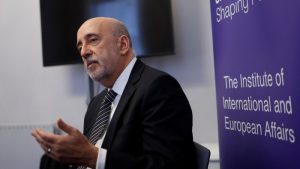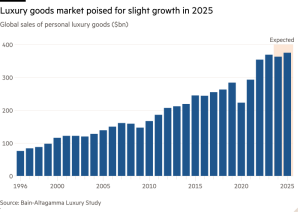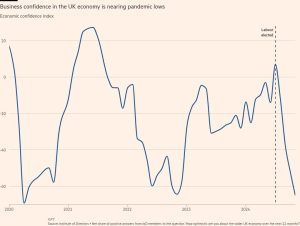China leaders pledge ‘vigorous’ promotion of domestic consumption

Stay informed with free updates
Simply sign up to the Chinese economy myFT Digest — delivered directly to your inbox.
China’s Communist party leaders have said “vigorous” efforts to boost domestic consumption are the country’s top economic priority at a keenly awaited annual meeting in Beijing.
President Xi Jinping and senior party leaders also pledged to increase China’s fiscal deficit and issue more “ultra-long” special bonds at the two-day Central Economic Work Conference, which is used to set the country’s economic policy path for the coming year.
A report on the conclusions of the meeting that was issued through state media said China would lower interest rates and reduce at “an appropriate time” the deposits that banks must hold as reserves.
The party meeting followed China’s change to its “moderately loose” monetary policy stance on Monday.
The meeting report listed the pledge to “vigorously boost consumption” as the first of a list of policy priorities.
Beijing would expand domestic demand “in all directions” while implementing other “special actions”, it said.
The world’s second-largest economy has for months flirted with deflation as consumers and businesses have pulled back from spending, leaving the economy dependent on exports to drive growth.
But the export strategy has already unsettled many of China’s trade partners around the world and is expected to run into further problems next year as Donald Trump becomes US president with plans to hit Chinese goods with extra tariffs.
China “faces a deepening adverse impact from the changing external environment and our country’s economy still faces many difficulties and challenges”, the meeting report said.
Zhiwei Zhang, chief economist at Pinpoint Asset Management, said it was clear Beijing would step up support for the economy, but that analysts would have to wait until after Trump’s tariff measures became clearer for specific details of the leadership’s intentions.
“The shift of policy this week is clearly more significant than that [which] took place in the last week of September,” Zhang said, referring to a package of stimulus measures that included interest rate cuts.
However, the limited detail provided by policymakers after this week’s meeting appeared likely to further disappoint investors who have been waiting eagerly for a big stimulus from Beijing.
Kelvin Lam, economist at Pantheon Macroeconomics, said there was still little clarity on what exactly the government would do to boost consumption. “The lack of details . . . disappoints the market,” he said.
Lam said he did not expect Beijing to implement consumption boosting-measures such as cash handouts, but that it was likely to seek to strengthen social security, roll out more trade-in programmes or try to stoke the stock market and increase investment.
Stock futures for 50 megacap companies in China’s A-share market fell 1.2 per cent shortly after the announcement.
“At this stage, we do not think there will be a fiscal bazooka that some investors hope to see, but the positive thing is that, for 2025, the fiscal package will be more accommodative compared to the last three months,” said Zhu Haibin, chief China economist at JPMorgan.
Zhu said he expected some stimulus next year and “a record high budget deficit and record high government bond issuance”, adding that ultra-long special government bond issuance could double to Rmb2tn ($275bn) in 2025.
Analysts at Morgan Stanley said earlier on Thursday that investors did not appear to be convinced that China’s easing measures would reflate the economy.
They said this explained why China’s 10-year bond yields had hit fresh year-to-date lows even after the previous pledges of more monetary loosening.
#China #leaders #pledge #vigorous #promotion #domestic #consumption





